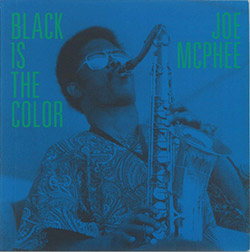
Multi-instrumentalist and creative dynamo Joe McPhee has an impressive body of work, which started way back in the late 1960s and he's still going strong, adding to the discography as we speak. It's been a distinguished career, sustained by a loyal and wide fan base across the globe. The roots of the oeuvre reach back to McPhee's home in the Hudson Valley, specifically Poughkeepsie. In this release the roots are in full display, in three concerts performed in Poughkeepsie and nearby New Winsor, NY, in 1969-70.
Recorded by Craig Johnson at Lincoln Center and Vassar College, in Poughkeepsie, and by Sandy Margolin at St. Helena Convent, in New Windsor, these three concerts have yielded 10 tracks on two CDs that provide an uncanny time-travel experience. We hear in its finest hour, the wildfire of the New Thing in the quieter venues of small towns, as McPhee finds himself here in two different groups: the Contemporary Improvisation Ensemble, and a group under his name featuring singer Octavius Graham.
The CIE performs music inspired by the late John Coltrane who had passed away in 1967, two years before these concerts, by whose spirit lives on in the two improvisations in particular (simple titled "Improvisation"), but also in "God Bless the Child, "Afro Blue," "Naima," "Black is the Colour" and McPhee's own "Juju for John Coltrane." With the CIE McPhee plays tenor sax, trumpet and some soprano. The music is rootsy and visceral, with Tyrone Crabb on bass, Bruce Thompson on drums, Ernest Bostic on vibes in one of the performances (at Vassar) and tenor saxophonist and flutist Reggie Marks on the other (St. Helena Convent). The late 1960s freedom vibe comes through loud and clear as this music reaches out to contemporary listeners for the first time, thanks to this compilation that showcases McPhee, years before the improviser recorded his legendary "Tenor" album in Switzerland in 1976.
The Lincoln Centre band that performed on May 24, 1970 under McPhee's name includes his Nation Time pianist Mike Kull and Tyrone Crabb on bass and Chico Hawkins on drums, as well as the aforementioned singer Octavius Graham. On the three tracks presented here, the band sounds funky and bluesy with a very accessible repertoire that included James Brown's "I Don't Want Nobody," Wilson Pickett's "Funky Broadway," and a bluesy set closer by McPhee called "Blues for the People."
In these concerts, as in much of McPhee's work, we see both the avant-garde strain and the roots approach melding into one, reminding us that the New Thing was, in many ways a means to reconnect to traditions that maybe had been lost with the commodification of jazz and the jazz artist. McPhee's music is an example of how varied in approach celebrators of the movement were, but also how it had a vital message to convey about the art of jazz at the time, which still speaks volumes today.
Comments and Feedback:
|



